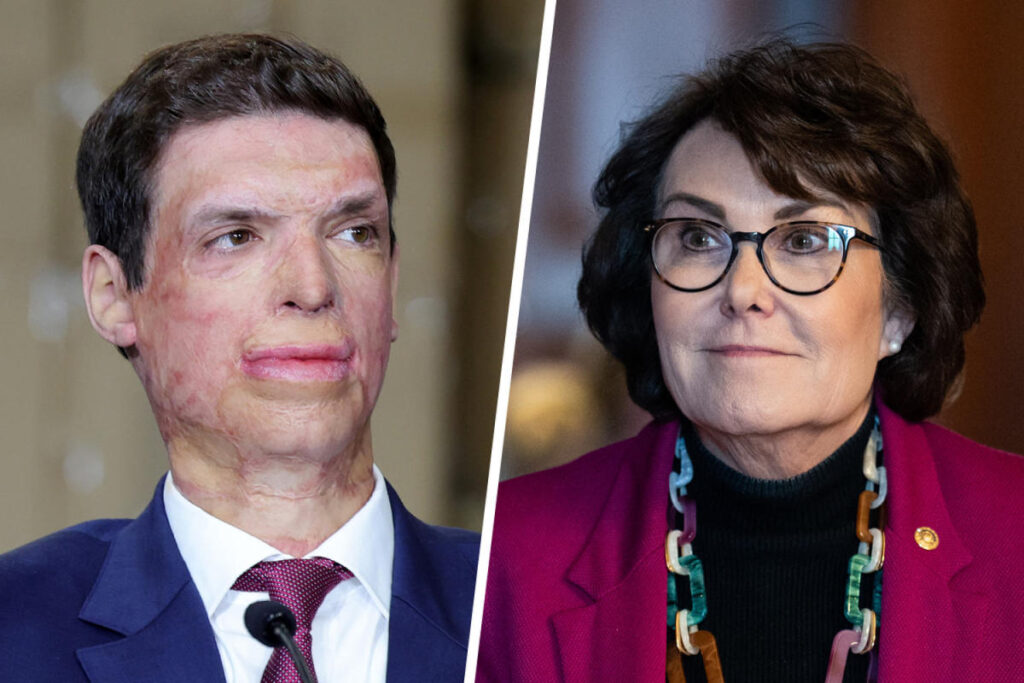In the heated Nevada Senate debate held in Las Vegas, Republican candidate Sam Brown aimed to challenge incumbent Democratic Senator Jacky Rosen, who is currently leading in the polls. Throughout the evening, Brown labeled Rosen as an “elitist” and an “insider,” portraying himself as an outsider fighting for the people’s interests against established political norms. On the other hand, Rosen focused her efforts on emphasizing her connection to Nevada and her legislative track record, attempting to rise above personal attacks while reaffirming her credibility as a candidate. Brown’s aggressive strategy highlighted his desperate need to close the gap in polling as Election Day approaches, casting shadows on Rosen’s achievements.
Central to the debate was the pressing issue of housing affordability, which has garnered significant concern in Nevada due to escalating prices. Rosen addressed this concern by proposing legislative measures designed to hold corporate investors accountable for driving up real estate prices. She introduced The Home Act, which aims to tackle housing shortages and impose penalties on companies that exacerbate affordability issues. In contrast, Brown offered a counterpoint by mocking Rosen’s proposals and pivoting the blame back on politicians for their failings. His rhetoric underscored a broader critique of government accountability, further characterizing himself as a voice for the common people regarding the intense housing market challenges.
Another prominent topic during the debate was immigration policy. The candidates discussed the controversial mass deportation proposals associated with former President Donald Trump, debating their implications in a state with a substantial Hispanic population. Rosen argued for a thoughtful and humane approach to immigration, warning against the potential for innocent individuals to be caught up in mass deportation efforts. In response, Brown framed his argument around the need for stringent border security, characterizing Rosen’s perspective as that of a detached “elite” who does not understand the challenges faced by everyday Nevadans. This exchange highlighted the growing divide between the candidates on immigration reform and border control.
The debate’s lighter moments came with a question regarding conducting independent investigations into unidentified flying objects (UFOs). Rosen expressed support for such investigations, especially considering Nevada’s ties to Area 51. Brown showed curiosity about the topic but quickly shifted to a criticism of Rosen’s alleged violations of the STOCK Act, suggesting that Nevadans deserved transparency regarding a different type of secrecy—political accountability. This maneuver reflected Brown’s strategy to frame Rosen not only as disconnected from ordinary citizens but also as potentially compromised in her dealings as a senator.
Reproductive rights emerged as another contentious point in the debate, with both candidates discussing the implications of Nevada’s existing abortion laws. Rosen took the opportunity to challenge Brown on his past positions regarding abortion, including his previous support for stricter limitations. Although Brown articulated a stance of supporting Nevada’s law, which permits abortion until the 24th week of pregnancy, Rosen’s pointed critiques about his evolving views illustrated the complexity of his position. By invoking his past where he held more conservative views, Rosen aimed to paint Brown as inconsistent and potentially threatening to reproductive rights.
As the debate concluded, it became evident that both candidates were keenly aware of their contrasting narratives and the vital issues at stake for Nevada voters. While Brown sought to reposition himself as the champion of the people against elite politics, Rosen maintained focus on her record and the urgency of protecting local values. With the election looming, the debate underscored the stark divides in policy approach and candidate perception that will shape the race, providing Nevada voters with a clear choice between two distinct visions for their state’s future.

